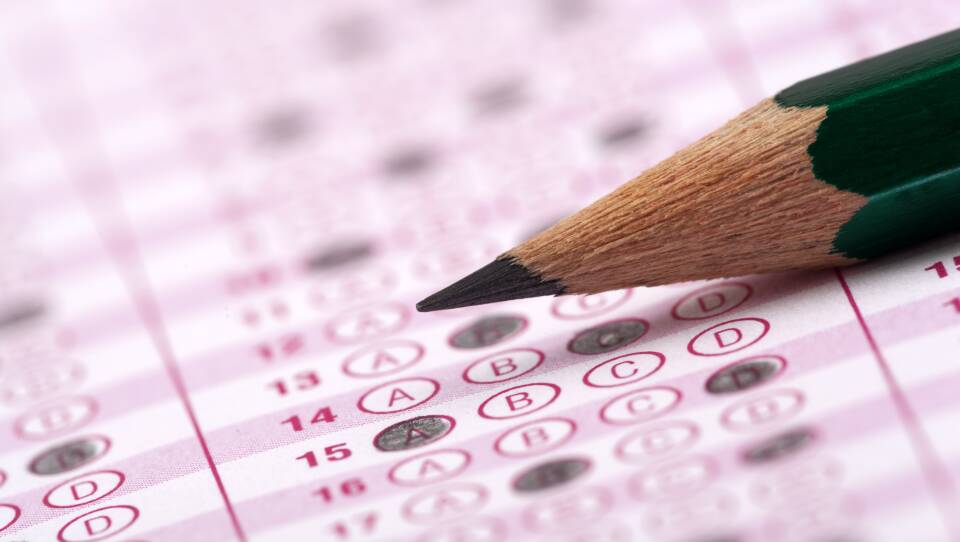Supporters of legislation that would pause the use of MCAS tests as a graduation requirement and for school accountability measurements have another shot this week at trying to bring the Education Committee to their point of view.
Critics of the assessments have for years been filing bills that would impose a moratorium on "high-stakes" elements of MCAS exams, and the COVID-19 pandemic, by highlighting the importance of in-person learning, has reignited longstanding debates over the use of standardized testing, how to close achievement gaps, the best ways to gauge students' proficiency, and the degree of state involvement in local school systems.
Sen. Jo Comerford and Rep. Jim Hawkins filed MCAS moratorium bills in June, each noting in the bill title that the proposal was a response "to the COVID-19 emergency." The bills are similar to legislation Rep. Marjorie Decker and Sen. Michael Rush filed at the start of this session in January 2019.
The Education Committee, chaired by Rep. Alice Peisch and Sen. Jason Lewis, effectively killed the Decker and Rush bills (H 431, S 328) earlier this year by including them in orders for further study. Comerford's bill (S 2814) met the same fate on Monday, with a study order of its own.
The version filed by Hawkins (H 4947) remains before the committee, where it arrived last week as committee members were collecting testimony on Comerford's bill. The committee plans to accept emailed comments on the Hawkins bill through 5 p.m. Wednesday.
More than 220 individuals and groups sent in written testimony on Comerford's bill by an Aug. 10 deadline. According to the committee's log of testimony received last week, more than 200 of the comments were in support.
Along with Hawkins and Comerford, five other legislators -- Sens. Sal DiDomenico, Michael Brady and Pat Jehlen, and Reps. Denise Garlick and Carol Doherty -- wrote in to back the bill.
Comerford, a Northampton Democrat, wrote in a letter to the committee that her bill gives lawmakers an opportunity to "meet the current crisis in education with necessary compassion and prioritization of time on learning" while also addressing persistent critiques "of what many believe is a failed test through setting up a robust process to usher in an exam worthy of 21st century ideals and educational aspirations."
Both the Comerford and Hawkins bills propose a moratorium on the use of MCAS tests as a graduation requirement, Hawkins through 2023 and Comerford through 2024. Each also creates a special commission to review the state's school and district evaluation system.
The Massachusetts Teachers Association and the American Federation of Teachers of Massachusetts both back an MCAS moratorium, and dozens of teachers contacted the committee last week to voice their support.
"Currently, school districts across our Commonwealth are making the difficult, but important decision, of what school will look like for their students in the 2020-2021 school year, knowing that it is likely that all they will be receiving from the State is a levelally (sic) funded budget," wrote Fitchburg City Council President Michael Kushmerek , a Democrat running for the House seat Rep. Stephan Hay is vacating. "While this burden is already significant for school committees and district leadership, the additional burden on teachers not only needing to adapt their teaching style to whatever model their school district chooses but additionally to ensure that each of their students is prepared for the MCAS is unacceptable and unrealistic."
Groups opposing the bill include the Massachusetts Business Alliance for Education, Education Reform Now Advocacy, Mass. Parents United and the Greater Boston Chamber of Commerce.
"A moratorium on MCAS testing, of any length of time, even one year, is bad for students,
particularly our most disadvantaged, and the Chamber urges you oppose it," Greater Boston Chamber President and CEO James Rooney wrote. "Forced school closures from the COVID-19 pandemic have only intensified the need to objectively measure how much students are learning to determine whether they are meeting expectations or need extra support to stay on track."
Rooney said the educational impact of the COVID-19 crisis can't be fully quantified without "comparable and consistent" data from standardized tests.
Ed Lambert of the Massachusetts Business Alliance for Education said testing performance "during this period should be looked at within the unique context of the times," but that it would be "absolutely unacceptable to deprive parents and taxpayers of essential information about school and district performance."
This spring, after schools were abruptly forced to transition to remote learning as COVID-19 cases mounted in Massachusetts, state officials waived the MCAS testing requirement for 2020.
Liam Kerr wrote in the Education Reform Now testimony that officials "acted correctly" in doing so.
"High standards paired with assessments have served the Commonwealth well, propelling us from the middle of the pack to the nation's leader in education outcomes," Kerr wrote. "While much work remains to close learning gaps, the MCAS is an invaluable component of that work."
Hawkins, in a weekend Facebook post, wrote that the Education Committee received an "avalanche" of testimony on Comerford's bill, and said the same was needed for his.
"Both bills received immediate and profound support within both chambers and from our constituents when shared via social media platforms," the Attleboro Democrat said in an Aug. 4 letter to Elementary and Secondary Education Commissioner Jeffrey Riley, signed by 32 other lawmakers. "There are very few with a true understanding of the implications who believe we should continue with MCAS during this pandemic. We implore you to respect the social/emotional needs of our students and decide swiftly and judiciously to cancel MCAS now."




